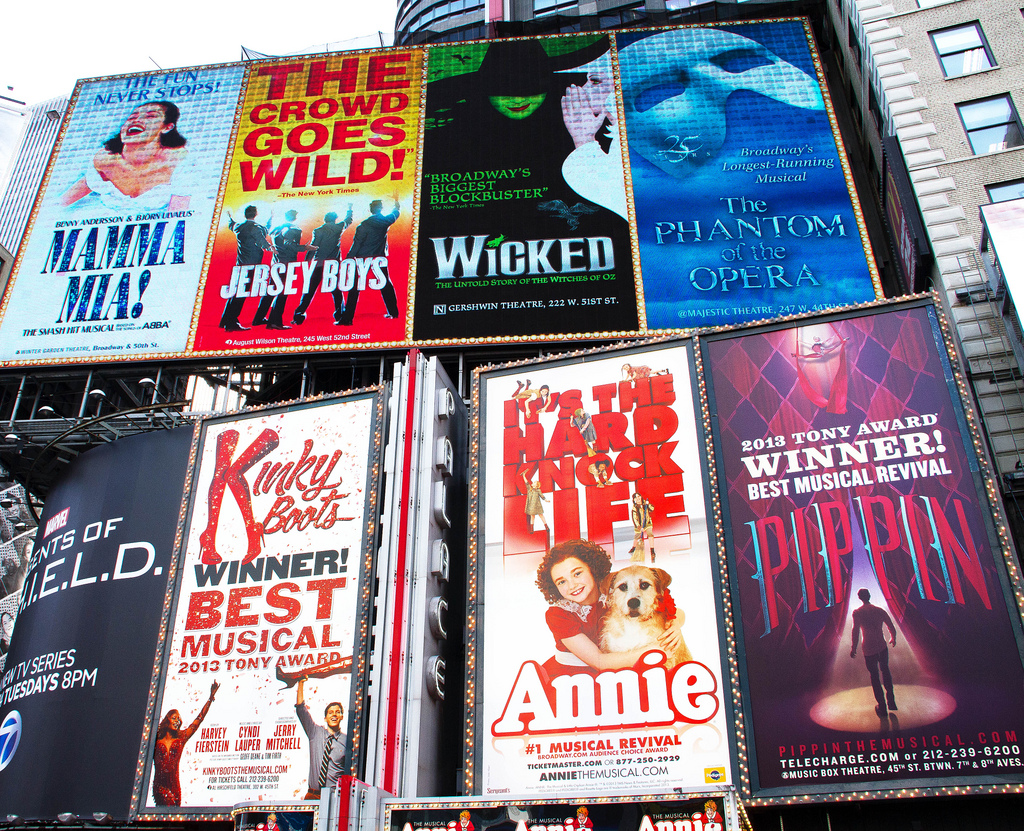By NAOMI BONILLA, Staff Writer
I went to see the musical Hamilton earlier this month with my uncle. I was excited, as I’d been trying to find tickets for two years. Fifteen minutes before the opening number, the taxi was stuck in traffic and we realized we might miss the opening number. We got off and ran the whole way to Richard Rodgers Theatre. I almost broke a heel, but it was worth it to see Javier Muñoz rap battle James Monroe Iglehart over the fate of American government.
The ultimate price? According to StubHub, $300-$400.
There are a few ways to buy tickets to a Broadway show. Most straightforward, you can go to the Box Office in person. Going there physically lets you avoid extra fees you might have to pay by phone or online.
On the day of the show, you can either go to the TKTS booth or try to line up at the box office to see if anyone has returned tickets.
A new option is to visit a ticket resale website or app like StubHub, Ticketmaster, and SeatGeek. Indeed, the online ticket resale industry has transformed Broadway. Many of the tickets sold there are provided by ticket brokers, who create bots that buy in-demand tickets as soon as they are sold at the Box Office and mark them up.
In 2007, New York lightened the restrictions on the price for which ticket brokers were able to resell tickets. The Broadway League reports that average admissions costs have risen by almost 142%. Higher ticket prices are heavily affected by the popularity of the show and how early in advance you want tickets.
Last year, I would’ve had to pay around $2000 to see Hamilton’s original cast perform. This year, Hello Dolly! tickets cost around $196. Premium seats could cost up to $748. On StubHub, seats for a Saturday performance bought two weeks in advance go for $300-$800, while coveted orchestra center seats can sell for as high as $2,000.
To be fair, ticket resale isn’t all bad. While it does raise prices for shows, it means people who can pay more are able to see shows that, before the age of ticket resale, sold out immediately.
It also makes it easier for people who would otherwise miss shows to refund their tickets. Discounts, good timing, and luck help theatre enthusiasts see as many as seven shows a season.
Broadway’s responses to ticket resale (coupons and preventions against resale, especially bot-driven resale) have also made their famous shows more accessible. Hamilton runs a front-row seat lottery for high school students, a market segment that wouldn’t be likely otherwise.
A few artists have come out in favor of stricter measures against ticket resale. Some want more ordinary people to be able to see plays and musicals, and want to prevent resale altogether. Others believe that they should receive the profit that normally goes to ticket brokers.
An important conversation has opened up about what changes Broadway should implement. It can take measures to prevent resale or bow to the market forces that drive up prices for in-demand shows. It can let individual artists make their own anti resale measures. It can even raise the prices for in-demand shows before resellers do, thereby giving artists more of the profit.
No matter which option Broadway chooses, one thing is clear – Broadway has to change to keep its core values alive in the digital age.
Photo labeled for reuse
